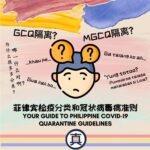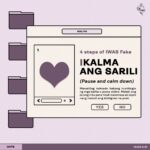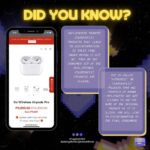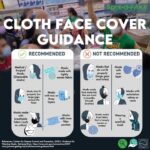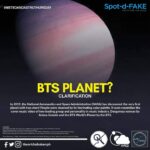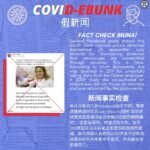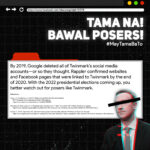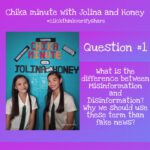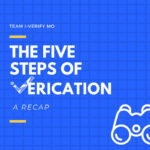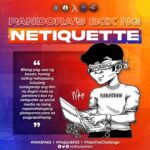
As part of its #IWASFAKE Project, OOTB Media Literacy Initiative is holding a Digital Campaign Challenge that aims to incentivize positive online behavior and countering disinformation amidst the COVID-19 “infodemic”. This contest is open to student and youth groups in the Philippines who have novel campaign ideas that address the different barriers to countering disinformation in their own communities.
To make Filipinos “fake news”-proof, we must find creative ways to overcome the many barriers that prevent us from countering disinformation. Research studies have shown that many cognitive and digital constraints get in the way of people’s consumption of news and accurate information. One thing we’ve learned is that fact-based arguments do not always work on people who have strongly held beliefs. Some literature suggests that to counteract these psychological vulnerabilities, people must be alerted about them. In the end, an effective response to disinformation requires understanding and addressing the converging factors of technology, media, and human behavior.
For this Digital Campaign Challenge, we ask the question, “How will you address disinformation in your community?” Here are some of the specific barriers to countering disinformation that you can consider in building your campaign:
- Cognitive biases and the psychology of “fake news”
- Trust/distrust in media and social institutions
- Algorithms and business model of social media platforms
- Media consumption behavior and habits of youth
- Societal fragmentation and polarization
Mechanics
Who can join?
- Teams of 3 – 7
- Ages 14 – 21 y/o
- (Preferably) Members of Campus Press, Student Government, and School- or Community-based Youth Organizations
[UPDATE] If school-based (all team members are from the same school), the school can field a maximum of 2 TEAMS
[UPDATE] Membership in youth orgs or clubs is NOT a requirement. We will also accept teams with members that do not share a common affiliation.
How can we join?
- Registration is FREE! Just head to tinyurl.com/iwasfakechallenge
- In your registration, you need to submit an Initial Campaign Pitch. The pitch should answer the following questions:
- What’s the disinformation problem in your community?
- Who’s your audience?
- What’s your message?
- How do you plan to address the problem?
What’s in it for me?
- Contribute to the #IWASFAKE campaign to promote positive online behavior and countering disinformation
- Develop your group’s potential and extend your campaign’s reach
- Meet like-minded individuals and organizations who share a common passion of promoting positive positive online behavior and countering disinformation
- Meet and learn from inspiring advocates and experts in counter-disinformation efforts, advocacy and social marketing
What can we win?
- First Place: P20,000
- Second Place: P15,000
- Third Place: P10,000
Campaign Entry Checklist
Campaign Strategy Plan
This document contains your detailed campaign plan. This must be submitted to the organizers on or before January 31, before your campaign’s official start.
Social Media Account/s
You need to have a social media account to start your campaign. You can set up a new account or use an existing one. It’s up to you to conduct your campaign in multiple or single platform.
Campaign Materials
A huge part of an effective campaign is creating content that drives your message. This could be through posters, videos, memes, infographics, articles, or any media form of choice.
Documentation of Campaign
At the end of your campaign, you must submit a compilation of your materials plus an evaluation of your whole campaign. This is due March 5.
Criteria for Judging
Timeline
You have two weeks to polish and finalize your Campaign Strategy Plan. You need to submit your plan on or before January 31, right before the official start of your campaign.
Your digital campaign should be launched in the first week of February and should run for at least the first 3 weeks of the month.
Your campaign should be fully documented and self-evaluated at the end of the campaign run. This will be the main basis for the judging of the entries. A template will be provided for this.

© This learning resource is made available by Out of The Box Media Literacy Initiative under a Creative Commons Attribution-NonCommercial 4.0 International license (CC BY-NC 4.0). You can copy and redistribute the material, remix, transform or build upon it so long as you attribute #IWASFAKE as the original source. You may not use the material for commercial purposes. View detailed license information at creativecommons.org.







